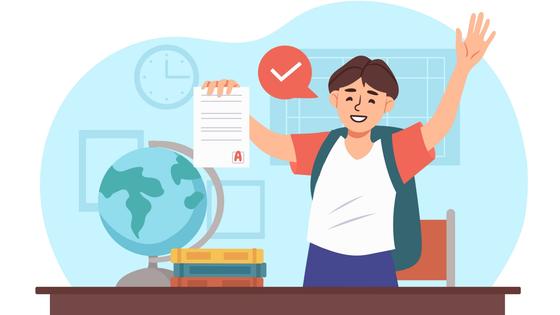Extra time for exams: how UK schools provide special “comfort” opportunities
In recent years, there has been a marked increase in the number of students in the UK who are given extra time for exams.

This practice, known as "access agreements," aims to create a more equitable environment for students with special needs, allowing them to reach their full potential without being limited by time constraints. Students with such agreements take the exam at a calmer pace, which helps them better cope with anxiety and show their knowledge to the fullest, in particular if they have special medical indications and diagnoses, such as, for example, attention deficit disorder or dyslexia.
Despite the obvious advantages, this trend creates new challenges for schools, which have to adapt the organization of the examination process. For example, one student may need a more informal setting for the exam, for example, in a gym instead of a classroom, while another needs a laptop due to difficulties in writing down answers by hand. Nevertheless, educators are trying to find innovative ways to provide support to each student while maintaining the integrity and fairness of the system.
According to the English exams regulator Ofqual, the number of approved access agreements in the 2023/4 academic year increased by 12.3% compared to the previous year, reaching 625,000. Similar growth has been observed in other parts of the UK: in Scotland, the number of requests for agreements increased from 62,515 in 2019 to 91,880 in 2023, and in Wales, the number of approved agreements increased by 11.1% over the last academic year, reaching 30,005.
"The organization of the exam process is indeed becoming more complex, but we see this as an opportunity to take care of every student and create the most comfortable conditions for exams," says Kirsty Mote, deputy director of Harrogate Grammar School in North Yorkshire. In addition to additional time, schools provide students with the opportunity to take exams in separate rooms, use laptops and other auxiliary equipment.
Although there are concerns about potential abuses of the system, especially in private schools, it is important to remember that most educators are genuinely committed to helping students with special needs. The task of the education system is to find a balance between supporting such students and ensuring equal opportunities for all, and British schools are actively working in this direction. The growing number of "access agreements" is evidence that the education system is becoming more responsive and attentive to the needs of each student, helping them successfully overcome difficulties and achieve their goals.












 “I’m Here for the Long Haul”: When Loyalty to a Company Becomes Toxic
“I’m Here for the Long Haul”: When Loyalty to a Company Becomes Toxic
 Freelancing, Remote Work, Office Jobs, or Consulting: How to Choose the Work Format That’s Right for You
Freelancing, Remote Work, Office Jobs, or Consulting: How to Choose the Work Format That’s Right for You
 Test: How Prone Are You to Abusive Behavior as a Manager?
Test: How Prone Are You to Abusive Behavior as a Manager?
 Test. What superpower would you possess if you were a superhero?
Test. What superpower would you possess if you were a superhero?
 Test. What Should You Let Go of Before Winter Ends?
Test. What Should You Let Go of Before Winter Ends?
 Test. Which Ritual Should You Start Practicing This Winter?
Test. Which Ritual Should You Start Practicing This Winter?
